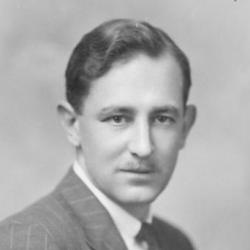A Quote by J. M. Coetzee
Anyone who says that life matters less to an animal than it does to us has not held in his hands an animal fighting for its life. The whole of the being of the animal is thrown into that fight, without reserve. When you say that the fight lacks a dimension of intellectual or imaginative horror, I agree. It is not the mode of being animals to have an intellectual horror: their whole being is in the living flesh...I urge you to walk, flank to flank, beside the beast that is prodded down the chute to his executioner.
Related Quotes
Nothing about his life is more strange to [man] or more unaccountable in purely mundane terms than the stirrings he finds in himself, usually fitful but sometimes overwhelming, to look beyond his animal existence and not be fully satisfied with its immediate substance. He lacks the complacency of the other animals: he is obsessed by pride and guilt, pride at being something more than a mere animal, built at falling short of the high aims he sets for himself.
Man is a Religious Animal. He is the only Religious Animal. He is the only animal that has the True Religion--several of them. He is the only animal that loves his neighbor as himself and cuts his throat if his theology isn't straight. He has made a graveyard of the globe in trying his honest best to smooth his brother's path to happiness and heaven....The higher animals have no religion. And we are told that they are going to be left out in the Hereafter. I wonder why? It seems questionable taste.
Man is at his furthest remove from the animal as a child, his intellect most human. With his fifteenth year and puberty he comes astep closer to the animal; with the sense of possessions of his thirties (the median line between laziness and greediness), still another step. In his sixtieth year of life he frequently loses his modesty as well, then the septuagenarian steps up to us as a completely unmasked beast: one need only look at the eyes and the teeth.
When a man sees a dying animal, horror comes over him: that which he himself is, his essence, is obviously being annihilated before his eyes--is ceasing to be. But when the dying one is a person, and a beloved person, then, besides a sense of horror at the annihilation of life, there is a feeling of severance and a spiritual wound which, like a physical wound, sometimes kills and sometimes heals, but always hurts and fears any external, irritating touch.
I studied a lot of animal behavior and one of the things I find really interesting is the whole idea that animals are sensory based thinkers and I wrote about this in my book, Animals in Translation. That an animal's memory is not in words, they've got to be in pictures - it's very detailed so let's say the animal gets afraid of something - they'll get afraid of something that they're looking at or hearing, the moment the bad thing happens.
As a society, we are typically deeply disassociated from animal cruelty, but more than ever, animal protection organizations are telling the backstory. People are being forced, to confront the realities. At the same time, we have an ever-growing understanding of the intelligence and emotional capacities of animals and an acceptance of the principle that animal cruelty is a moral problem.
What does Reverence for Life say abut the relations between [humanity] and the animal world? Whenever I injury any kind of life I must be quite certain that it is necessary. I must never go beyond the unavoidable, not even in apparently insignificant things. The farmer who has mowed down a thousand flowers in his meadow in order to feed his cows must be careful on his way home not to strike the head off a single flower by the side of the road in idle amusement, for he thereby infringes on the law of life without being under the pressure of necessity.
I believe that the best way to create good living conditions for any animal, whether it's a captive animal living in a zoo, a farm animal or a pet, is to base animal welfare programs on the core emotion systems in the brain. My theory is that the environment animals live in should activate their positive emotions as much as possible, and not activate their negative emotions any more than necessary. If we get the animal's emotions rights, we will have fewer problem behaviors... All animals and people have the same core emotion systems in the brain.





































